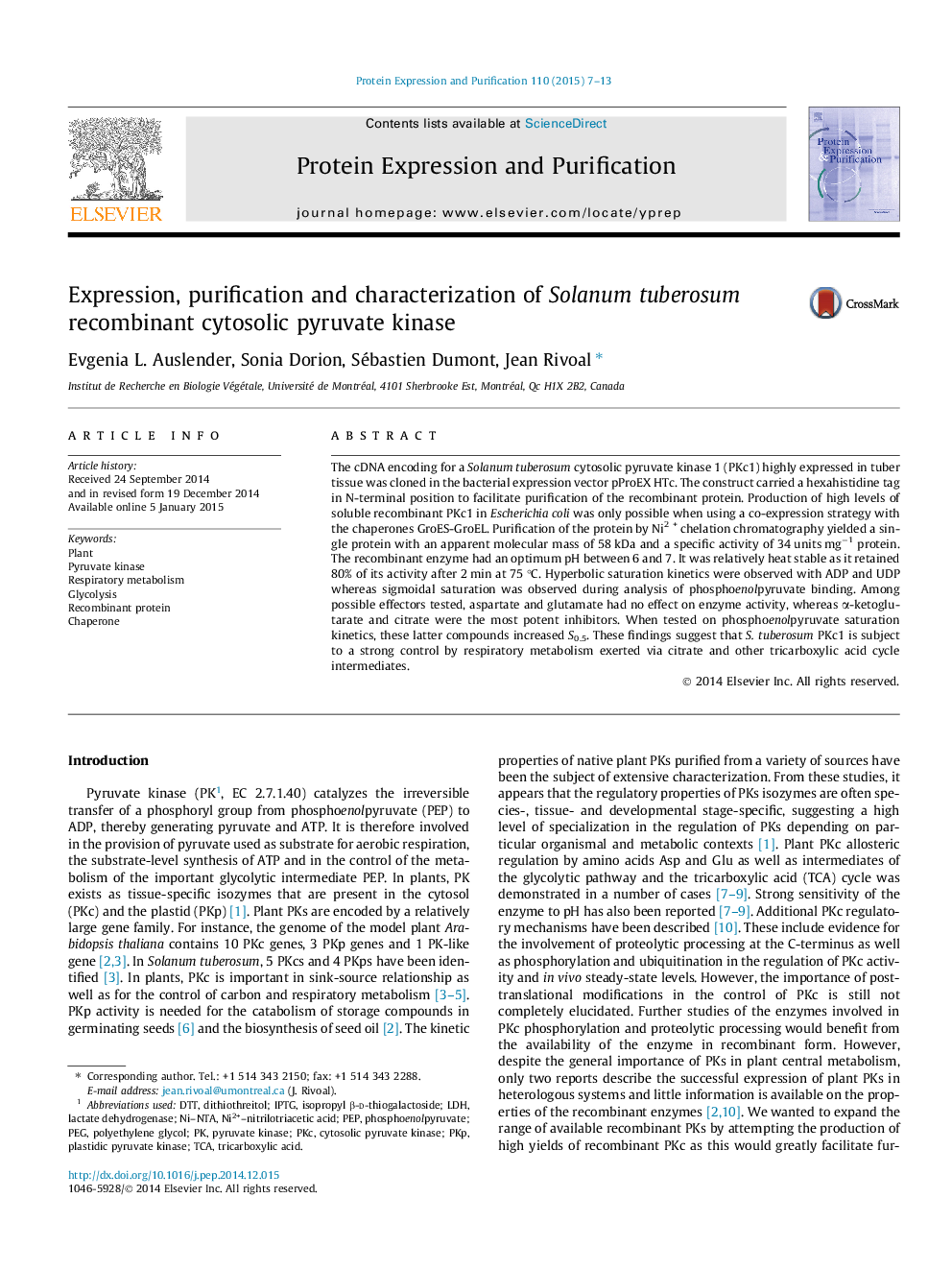| Article ID | Journal | Published Year | Pages | File Type |
|---|---|---|---|---|
| 2020358 | Protein Expression and Purification | 2015 | 7 Pages |
•Potato pyruvate kinase 1 was co-expressed in E. coli with chaperones GroES-GroEL.•Pyruvate kinase 1 solubility and purification protocol were optimized.•The recombinant enzyme was relatively thermostable.•Recombinant potato pyruvate kinase 1 was regulated by Krebs cycle intermediates.
The cDNA encoding for a Solanum tuberosum cytosolic pyruvate kinase 1 (PKc1) highly expressed in tuber tissue was cloned in the bacterial expression vector pProEX HTc. The construct carried a hexahistidine tag in N-terminal position to facilitate purification of the recombinant protein. Production of high levels of soluble recombinant PKc1 in Escherichia coli was only possible when using a co-expression strategy with the chaperones GroES-GroEL. Purification of the protein by Ni2 + chelation chromatography yielded a single protein with an apparent molecular mass of 58 kDa and a specific activity of 34 units mg−1 protein. The recombinant enzyme had an optimum pH between 6 and 7. It was relatively heat stable as it retained 80% of its activity after 2 min at 75 °C. Hyperbolic saturation kinetics were observed with ADP and UDP whereas sigmoidal saturation was observed during analysis of phosphoenolpyruvate binding. Among possible effectors tested, aspartate and glutamate had no effect on enzyme activity, whereas α-ketoglutarate and citrate were the most potent inhibitors. When tested on phosphoenolpyruvate saturation kinetics, these latter compounds increased S0.5. These findings suggest that S. tuberosum PKc1 is subject to a strong control by respiratory metabolism exerted via citrate and other tricarboxylic acid cycle intermediates.
